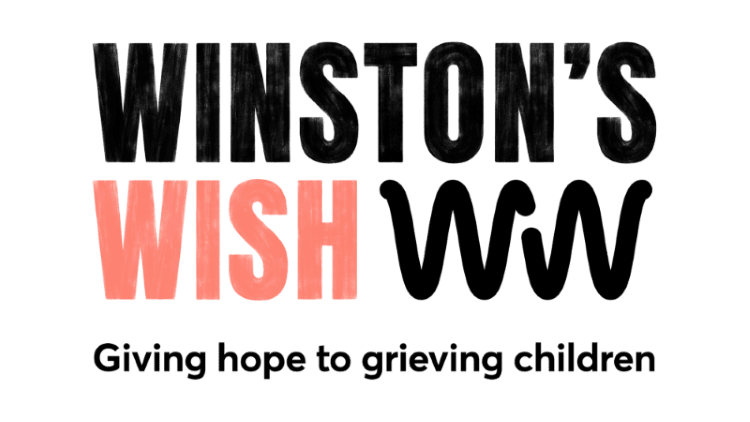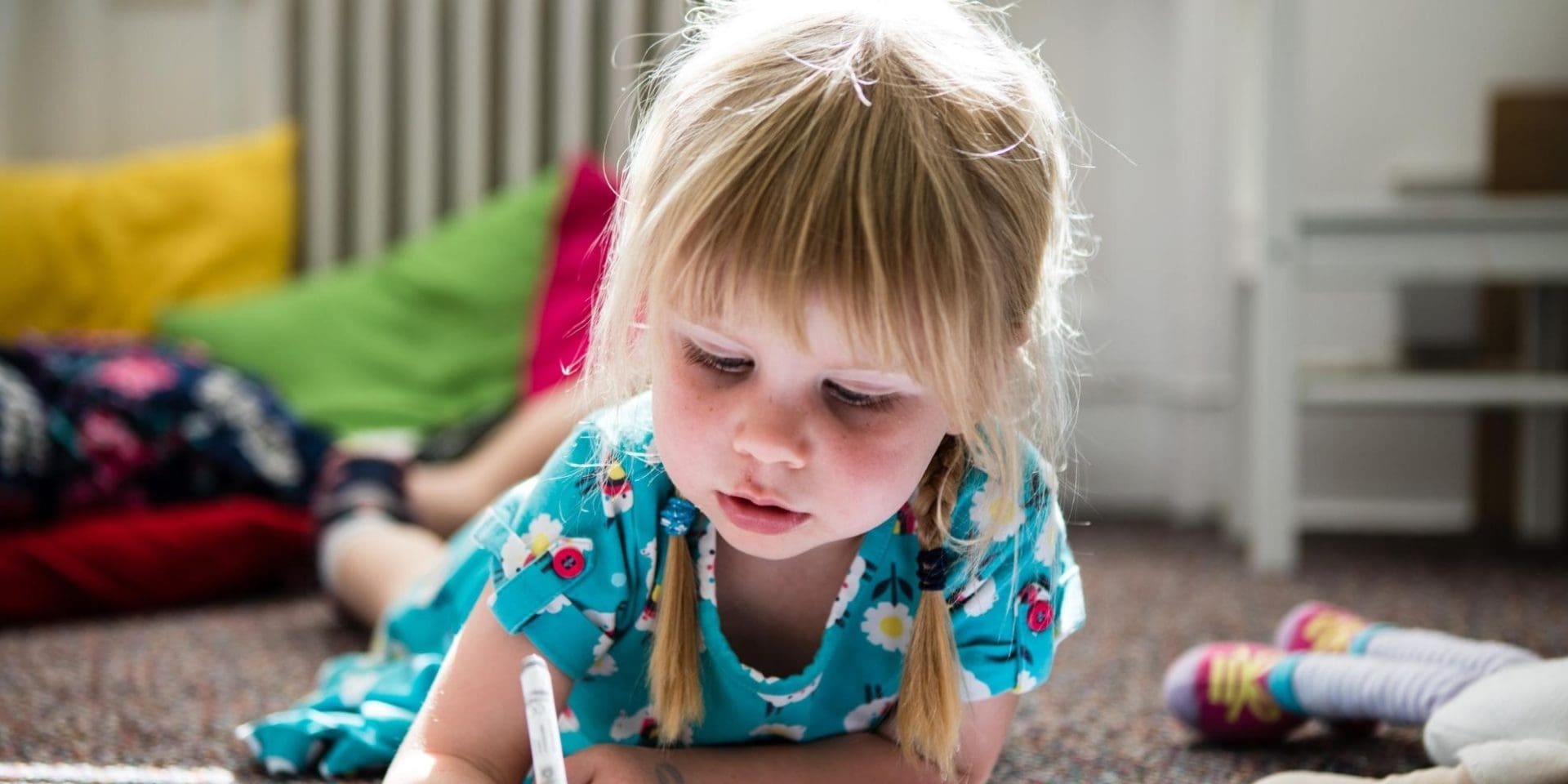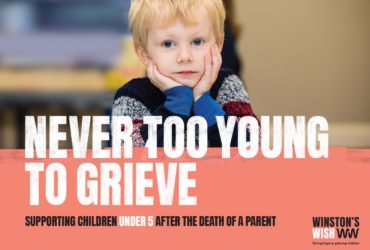It is a natural instinct to want to shield children from further pain when someone important has died and you may feel that your children are too young to be told how they died, especially if the death was sudden or violent, for example through suicide or homicide.
However, from experience we know that even young children will know that something has happened and will pick up on changes in behaviour, overhear conversations, or see media coverage or messages on social media. It’s better for them to have the facts from you rather than learning it from someone else or letting their imagination fill in the gaps.
Why do I need to tell them?
Every child is different and unique, however from our experience it is better to be open, honest and direct with a child when a special person has died.
All children, including very young children will pick up when something sad and terrible has happened. They will notice that the behaviour of adults and older siblings around them has changed; they will pick up on telephone conversations or discussions with wider family and community members; and, depending on the circumstances of a death, there may also be media coverage which they may be exposed to. Children are also more aware of information shared on social media, for example, Mummy has lots of new messages sending love and support on Facebook and Daddy has not been around for a few days.
If these changes are unexplained it can cause further anxiety and worry for children. In the absence of information, children tend to fill in the gaps and will use their imagination to try and make sense of what has happened to them – often the things they imagine can be worse than the reality.
When they are not told things, children can feel left out, confused or forgotten and for some children this can lead them to blaming themselves for what has happened. They also need to be able to rely on adults around them to give them the truth and guidance to make sense of an upsetting and confusing situation.
From our experience, it is better for children to receive news of the circumstances of a death from a trusted loved one within their family so it can be delivered in a helpful and sensitive way, rather than children receiving this news in an uncontrolled and chaotic way. While professionals, such as teachers or health professionals, may have good intentions it is easy for messages to become confused for children and we suggest such news should be shared by people who know the children best and understand their needs.
How much should I tell a child about how their loved one died?
This is a question we get asked frequently on the Winston’s Wish Helpline and can often be a concern for parents, carers and professionals supporting younger children.
Many adults understandably worry about talking to children about death. You might worry about what to say, saying the wrong thing or making things worse. These are all very natural worries, however remember that the worst has already happened for a child – nothing you say can make it worse.
Children are exposed to death and dying from a young age in a variety of ways, for example Disney films including Up and The Lion King have strong themes of loss. Even young children have an ability to deal with the truth that adults often underestimate.
What you tell a child about what has happened in their family will depend on many factors, including their level of understanding.
It is often easier for children to be given information in small chunks rather than all in one go, and simple messages may need to be repeated several times – repetition is how young children process new information. Be patient with children and remember that repetition does not mean they have not listened or understood the first time.
Think of it like a jigsaw – young children begin to build puzzles with just a few pieces of information. “I have something really sad to tell you” and “Daddy has died” may be enough information to begin with.
When you tell a child about a death be clear, direct and honest. Use the words ‘died’ and ‘dead’ rather than ‘passed away’ or ‘lost’. Such terms can lead to confusion, especially for young children who may wonder if they can go and find the person who is ‘lost’. Using the correct words help children to know that there is a special word for this thing that has happened. They may be too young to understand everything about death and dying but will realise that there are new words for a new situation.
Each child will be ready to hear more information at different times. Some children will want to know more straight away, others will need more time – be led by them.
How do I answer their questions about the death?
Children are naturally inquisitive and it is important to let them know that it’s ok to ask more questions about how someone special has died. Asking questions is a clear sign that children are ready to hear more and add more pieces to their jigsaw. For example, if they ask “how did Daddy die?” it is ok to tell them using simple words that they can understand.
For example, in the case of a heart attack, you could say:
“Daddy died as his heart stopped working and this meant his body stopped working.”
In the case of a disease such as cancer, you could say:
“Mummy had an illness called cancer. Mummy’s cancer was in her chest. The doctors tried really hard but none of the treatments could make Mummy better. The cancer made it really difficult for Mummy to breathe which meant her breathing stopped and her body stopped working.”
It might feel strange to use a medical word like cancer with a very young child. However, it is helpful to use clear words with children rather than terms like ‘poorly’ which can make children very concerned next time someone is described as poorly when they have a minor cold. You might want to explain that cancer, or other illness, makes people very, very ill, which causes them to die, but explain that lots of illnesses do not lead to death.
A young child may find it hard to actually process the information given but what is important is that a child will have heard the facts from someone they know and trust. As children grow, their understanding of initial information will change and they will feel ready to hear more detail. It can be useful to gently reassure children every now and again that questions about the person who died are ok.
How do I know if they have understood?
It can be really hard to know what your child has understood during your conversations so it can be helpful to reflect on what their story may be by placing yourself in their shoes. This is a good way to test what children may already understand and what else you may need to share or repeat with them.
For example, ask yourself:
- What would they say if I asked them what happened?
- Will they be correct?
- Do they have enough information for their age?
You may find it helpful to play out the scenario of what has happened to the person who died with your child. Often parents are surprised by just how much their children know and what they can express through play rather than words.
What about tragic deaths – how much information is too much?
We know that there are some types of death that are harder to talk about, such as suicide or murder. We would recommend the same principles of being honest, clear and direct, but we understand this can feel more difficult. On our website, you will find specific guidance and resources to support children bereaved by suicide and homicide and our experienced team can offer advice on explaining traumatic death to young children – see below for how you can contact us.
Where to get specialist support
The Winston’s Wish Freephone National Helpline is continuing to operate as normal. If you need advice on supporting a young bereaved child you can call us on 08088 020 021 (8am-8pm, Monday-Friday), email us on ask@winstonswish.org or use our online chat.
Our Winston’s Wish Crisis Messenger is available 24/7 for urgent support in a crisis. Text WW to 85258.
Other resources you might find helpful
Never Too Young To Grieve
This specialist book, written by the Winston’s Wish team, offers advice to parents, carers and professionals supporting children under five after a death.
Activities for bereaved children
Download our activities to help grieving children and young people to explore and express their feelings and emotions and to help them maintain memories of the person who has died.




